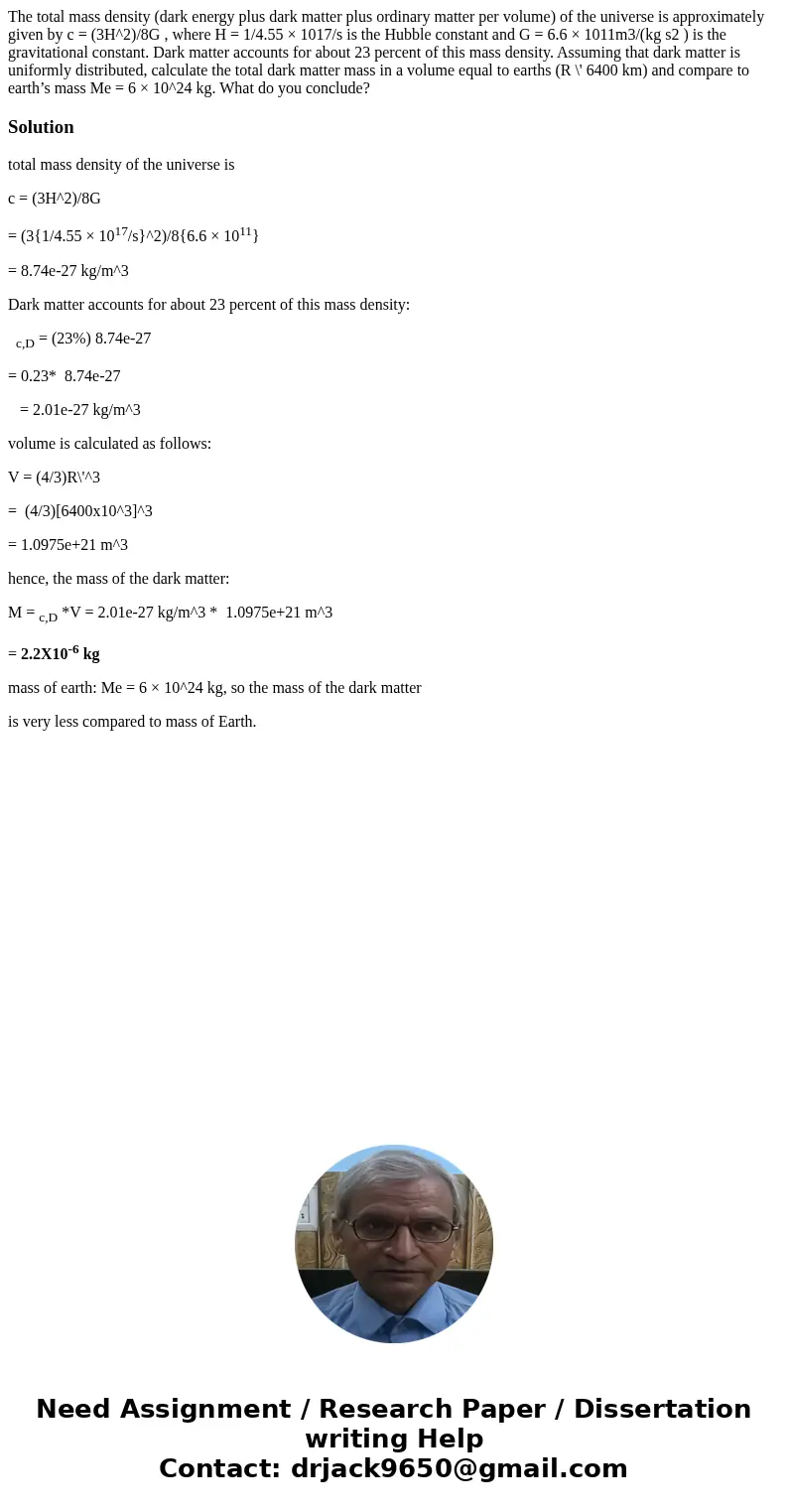The total mass density dark energy plus dark matter plus ord
The total mass density (dark energy plus dark matter plus ordinary matter per volume) of the universe is approximately given by c = (3H^2)/8G , where H = 1/4.55 × 1017/s is the Hubble constant and G = 6.6 × 1011m3/(kg s2 ) is the gravitational constant. Dark matter accounts for about 23 percent of this mass density. Assuming that dark matter is uniformly distributed, calculate the total dark matter mass in a volume equal to earths (R \' 6400 km) and compare to earth’s mass Me = 6 × 10^24 kg. What do you conclude?
Solution
total mass density of the universe is
c = (3H^2)/8G
= (3{1/4.55 × 1017/s}^2)/8{6.6 × 1011}
= 8.74e-27 kg/m^3
Dark matter accounts for about 23 percent of this mass density:
c,D = (23%) 8.74e-27
= 0.23* 8.74e-27
= 2.01e-27 kg/m^3
volume is calculated as follows:
V = (4/3)R\'^3
= (4/3)[6400x10^3]^3
= 1.0975e+21 m^3
hence, the mass of the dark matter:
M = c,D *V = 2.01e-27 kg/m^3 * 1.0975e+21 m^3
= 2.2X10-6 kg
mass of earth: Me = 6 × 10^24 kg, so the mass of the dark matter
is very less compared to mass of Earth.

 Homework Sourse
Homework Sourse